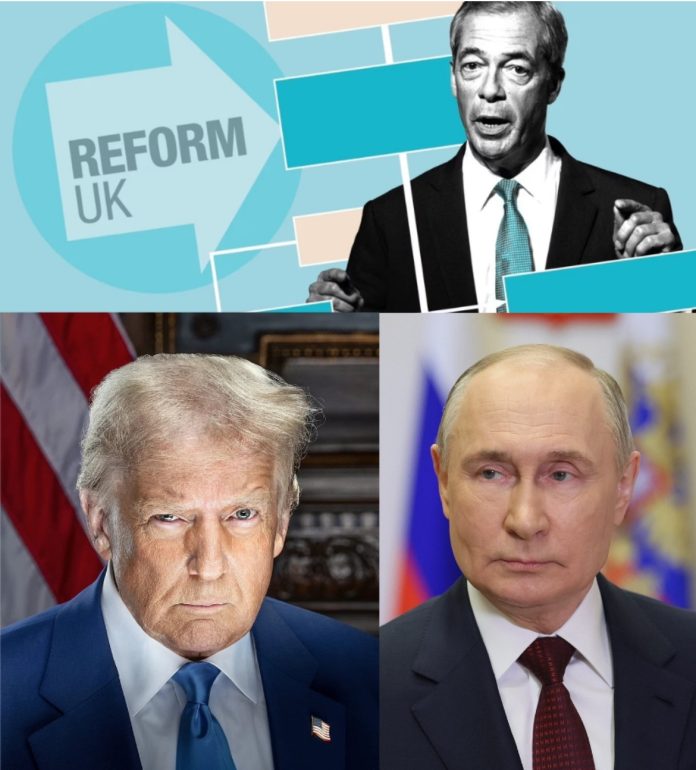Nathan Gill, a former Member of the European Parliament (MEP) for UKIP and later the Brexit Party, has appeared in court accused of accepting bribes to promote statements that aligned with Russian interests regarding Ukraine. The allegations, detailed at Westminster Magistrates’ Court on Monday, claim that Gill agreed to receive payments in exchange for making public statements that would “benefit” the Russian narrative on Ukraine during his time as an MEP.
Gill, 51, from Anglesey (Ynys Môn), served as an MEP from 2014 to 2020. According to the prosecution, he was allegedly approached on multiple occasions to make specific statements in the European Parliament and to news outlets concerning Ukraine. These statements, the court heard, were intended to further a narrative favourable to Russia amid ongoing tensions in Ukraine.
Richard Link, a solicitor representing the Crown Prosecution Service (CPS), outlined the charges against Gill, stating that he is accused of accepting payment to “make statements [which] had a particular narrative that would have been seen to benefit Russia in relation to events in Ukraine at the time.” Link further alleged that Gill “agreed to receive or accept money” in violation of the Bribery Act 2010.
Gill was stopped by police at Manchester Airport on 13 September 2021, following an investigation into his activities. The court heard that he had been “tasked” on at least eight occasions to make specific statements in support of the Russian narrative on Ukraine.
Gill faces one count of conspiracy to commit bribery under the Criminal Law Act 1977 and eight counts of bribery under the Bribery Act 2010. He has denied all charges. Senior District Judge Paul Goldspring referred the case to the Old Bailey, with Gill instructed to appear there on 14 March. Gill attended the hearing via a remote link alongside his solicitor and was granted conditional bail. As part of his bail conditions, he must surrender his passport, refrain from applying for any international travel documents, and avoid contact with individuals associated with the case.
Reform UK Under Scrutiny: Allegations of Ties to Putin and Trump
The case against Nathan Gill has reignited scrutiny of Reform UK, the successor to the Brexit Party, and its alleged connections to both Russian President Vladimir Putin and U.S. President Donald Trump. Critics have accused the party of acting as a conduit for foreign influence, particularly from Russia and Trump-aligned factions in the United States.
Alleged Ties to Russia
Reform UK, led by Nigel Farage, has long faced allegations of being sympathetic to Russian interests. Farage, a prominent Brexit campaigner and former leader of the Brexit Party, has been criticised for his close ties to individuals linked to the Kremlin. In 2014, Farage admitted that the Brexit Party had accepted donations from individuals with connections to Russia, though he denied any wrongdoing.
In 2019, a report by the Digital, Culture, Media and Sport (DCMS) Committee highlighted concerns about Russian interference in UK politics, including the Brexit referendum. The report noted that Farage’s former party, UKIP, had “accepted money from Kremlin-linked sources” and that Farage himself had appeared on Russian state-funded media outlets, such as RT (Russia Today), to promote pro-Brexit and anti-EU narratives.
Labour MP Chris Bryant, a member of the DCMS Committee, stated, “There is a clear pattern of Russian attempts to influence British politics, and parties like UKIP and Reform UK have been at the centre of it. The links between these parties and Kremlin-aligned figures are deeply troubling.”
Alleged Ties to Trump
Reform UK has also been accused of aligning itself with the political agenda of Donald Trump, particularly in promoting populist and anti-establishment narratives. Farage, a close ally of Trump, played a significant role in the former U.S. president’s 2016 and 2024 election campaigns, appearing at rallies and offering vocal support. Critics argue that Reform UK’s policies and rhetoric often mirror those of Trump’s Republican Party, including scepticism towards climate change, opposition to immigration, and a focus on nationalist policies.
In 2020, Farage was criticised for meeting with Trump’s former strategist, Steve Bannon, who has been accused of fostering ties between far-right movements in Europe and the United States. Bannon described Farage as a “hero” and praised his efforts to promote Brexit and populist politics.
Conservative MP Tom Tugendhat, chair of the Foreign Affairs Committee, warned about the dangers of foreign influence in UK politics. “We cannot allow our democratic processes to be hijacked by external actors, whether they are from Russia or the United States. Parties must be transparent about their funding and their connections to foreign powers,” he said.
Reform UK’s Response
Reform UK has denied any wrongdoing and dismissed allegations of being agents for Putin or Trump. A spokesperson for the party stated, “Reform UK is an independent political party that operates solely in the interests of the British people. Any suggestion that we are influenced by foreign powers is baseless and politically motivated.”
However, the case against Nathan Gill has raised further questions about the party’s integrity. While Reform UK has distanced itself from Gill, emphasising that he was never a formal member, the allegations against him have cast a shadow over the party’s reputation.
In summary, the allegations against Nathan Gill and the broader scrutiny of Reform UK highlight the growing concerns about foreign interference in British politics. As the case progresses, it is likely to fuel debates about the need for greater transparency and accountability in political funding and the influence of external actors on democratic institutions. The outcome of Gill’s trial could have significant implications not only for him but also for the future of Reform UK and its place in the UK’s political landscape.







